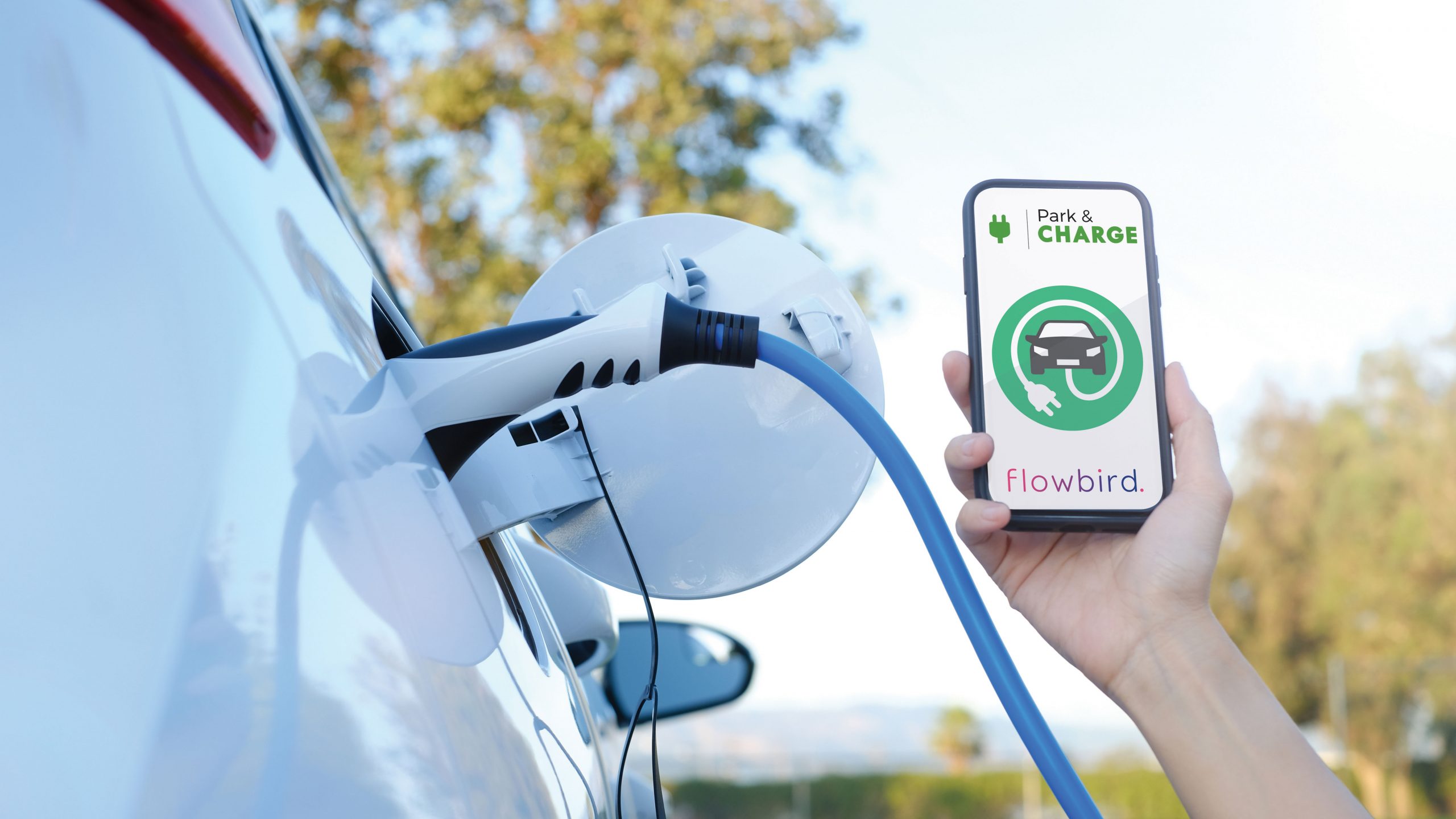Flowbird has launched a new electric vehicle charging solution that enables local authorities to leverage parking infrastructure to develop EV charging capacity fit for a low carbon future.
Flowbird’s Park & Charge innovation offers a cost-effective route for councils to develop on-and off-street EV charging capability by combining advanced charging hardware with existing parking terminal, app and account-based payment systems. With Park & Charge, both EV charging and parking services can be managed through a common centralised platform.
“Park & Charge enables local authorities to optimise the value of their parking infrastructure, by integrating investment in EV charging with their established parking payment and management systems,” said Adam Sharp, Digital Solutions Sales Manager at Flowbird.
“The solution makes it easy for councils to future-proof their investment in EV capacity – and to avoid technology ‘stranded’ assets – through a package that includes fast charging up to 7kWh, dynamic load management to protect local energy networks, inductive charging capability, and 5G, WiFi and Internet of Things connectivity. Park & Charge units are also manufactured from 80% recycled materials, underlining our focus on a more sustainable future.”
There are three charging options in the Flowbird solution – a ground mounted socket for on-street and surface car parks; a post mounted socket for existing street furniture; and a wall mounted socket system that can link groups of 10 units to a single master charger. Users will have a choice of payment options via Flowbird parking terminals, mobile apps or a white labelled Pay to Park web portal.
Park & Charge is one part of Flowbird’s growing portfolio of solutions focused on helping local authorities meet climate and sustainability commitments.
Said Adam Sharp: “Many councils have declared climate emergencies and are looking to technology partners such as Flowbird to help them deliver their low carbon strategies. With new petrol and diesel-powered cars being phased out by 2035, EV adoption and charging capability are central to delivering these objectives – and to achieving the wider Net Zero target by 2050 – but there are also other innovations that can play a part.
“For example, Flowbird technology now enables local authorities to apply emissions-based parking charges to higher polluting vehicles to encourage take-up of lower emitting cars, and our terminals can also be fitted with environmental monitoring modules for the automatic capture and transmission of street level pollution data to inform local environmental and traffic management strategies.”

